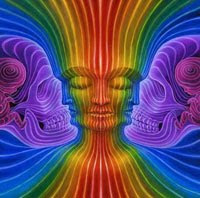
In observance of Mental Illness Awareness Week, one of my black belts has asked everyone to research and educate themselves on a mental illness of their choice. Over half of us will be touched by mental illness at some point in our lives, either directly or indirectly. Despite this staggering statistic, mental health issues remain shrouded in taboo and as a consequence, many people suffer in ashamed silence.
Trichotillomania is a form of self-injurious behavior that can manifest in many ways for different reasons. Trichotillomania is characterized by the urge to pull out your hair. It usually starts with the eyelashes and eyebrows but ultimately spreads to the scalp hair and body hair. For some, hair pulling is an adopted strategy for handling stress and anxiety. By pulling hair and causing the associated pain, the brain releases endorphins that help numb the pain. With elevated endorphin levels we feel less pain and fewer negative effects of stress.
As is the case for most mental illnesses, the side affects of trichotillomania can be even more severe. Imagine only being able to cope with your anxiety and stress by pulling your own hair. It won’t take much time before you start to feel a little self conscious about your appearance. Before long you will adopt a strategy of avoiding going out in public - but the kicker is, if you do go out in public your anxiety and stress levels will be extremely high because of your self consciousness with your appearance. This just leads to more hair pulling and the reinforcing of the whole negative cycle. Clinical depression will soon follow.
Trichotillomania is extremely difficult to treat and unfortunately, most people affected with this disorder are so ashamed and confused about their situation that they never seek treatment. Once a person has the cycle of hair pulling, anxiety, social anxiety, and depression going, it becomes difficult to address one issue without causing a negative affect to another issue. We have to grease the squeaky wheel and suffer the consequences because whatever issue is at the biggest crisis level becomes the priority.
The key for successful treatment of any type of mental illnesses is early intervention. Sufferers tend to go through the phases of denial and embarrassment before they ask for help. By the time they have accepted their condition and seek treatment, their condition has often become more complicated and so their treatment strategy also becomes more complicated.
The real key to combating mental illness is raising awareness. If we can remove the taboo associated with mental health issues we will open up worlds of possibility for those who are currently suffering alone in silence.
“Mental health problems to not affect three or four out of every five persons but one out of one.” - Dr. William Menninger (1899 - 1966)
 As 2009 comes to an end, I find myself reflecting upon the year that has just passed. I accomplished many of the goals I had set for myself while unforeseen circumstances conspired to keep other goals out of reach. What I will take onward from 2009 is the evolution of my process.
As 2009 comes to an end, I find myself reflecting upon the year that has just passed. I accomplished many of the goals I had set for myself while unforeseen circumstances conspired to keep other goals out of reach. What I will take onward from 2009 is the evolution of my process.





























